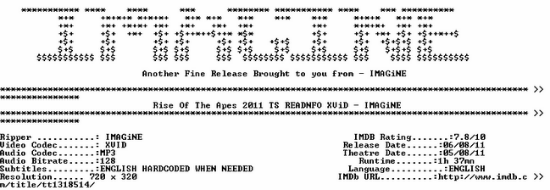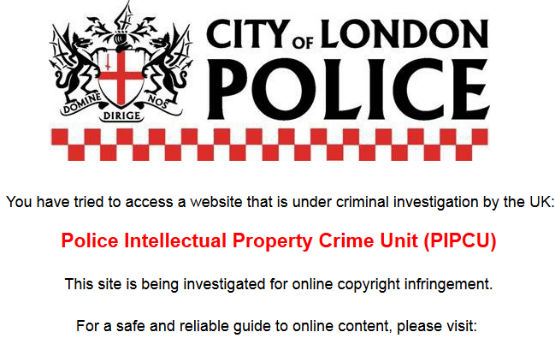In 2011 the notorious IMAGiNE movie piracy group was dismantled by the feds. The group was known for releasing large numbers of movies onto the Internet, many of which were still playing in theaters.
This attracted the attention of the MPAA who launched an investigation which eventually led to the arrests of four U.S. residents.
These IMAGiNE members were charged with several counts of criminal copyright infringement and they eventually received prison sentences ranging from 23 months up to five years in prison.

Among the sentenced was the then 53-year-old IMAGiNE sysop Gregory Cherwonik, mentor of a robotics team from Canandaigua. Cherwonik was sent to prison January last year and has now served half of his sentence.
Through one of his family members, TorrentFreak recently received an open letter from Cherwonik, where he shares his thoughts on his prosecution, the life he’s living now, and what awaits after his release.
The letter doesn’t lend itself to be excerpted or evaluated in detail, so with permission from Gregory and a close family member we have decided to post it pretty much as it arrived. It’s definitely controversial, but written from the heart.
—-
A Letter From Prison – by Gregory Cherwonik
This is the fourth time writing this, trying to get it to sound good to me. It’s hard to complain without sounding whiny.
Anyways. I’m past the halfway point of my sentence. 21 of 34 months paid in my debt to the MPAA. Usually when you’re sentenced to prison you’re sent for crimes against society or the government. Unfortunately it no longer works that way in the United States of America.
The IMAGiNE group provided society a service, so I owe it no debt. We gave those that couldn’t afford or have access to first run movies access to them. The poor, the service men and women, those that didn’t want to get their wallets raped to see for the most part poor quality movies. Seems only half (if even) of the movies produced these days are worth seeing.
We didn’t do it for money or fame, we did it because the government and the corporations gave us the tools. The government with the “Disabilities Act” where all theaters had to have a secondary audio signal for those with hearing disabilities. The Corporations by providing higher and higher quality video cameras WITH 24fps speeds. It’s like they wanted us to pirate movies. There was never any expectation of cash for this service. The fact of the matter is we voted on whether we should make money from it… it was voted down.
But what we did get out of this was a government that would lie and cheat to achieve its end result, a government that feels it can do what it wants to whoever it wants, anytime it wants, no matter where in the world they live. A government that no longer takes the people’s interest to mind when it makes laws. Now it’s a matter of who’ll pad their pockets the most. In my opinion we as a country took a nose dive when we started treating corporations as people.
While I was first getting into torrenting long before IMAGiNE was even thought of, I read the law. As I understood it, as long as there was no “Financial Gain” it was a misdemeanor. I see the newer DVDs new state that whether there’s Monetary Gain or not. Did they amend the law, or is it that the MPAA feels it can also do as it pleases?
Did the lMAGiNE case have something to do with this? I’m sure the prosecutors were fit to be tied when we stated we never received or expect any monetary gain from our endeavors. In fact it problem screwed them when they found out we actually paid money to do what we did. I guess not many people do things for a simple “Thank You” any more.
But the reason I myself am in prison is because my “Financial Gain” was invented. When the US attornies couldn’t prove any monetary gain they decided to lie. They said my gain was the “THOUSANDS” of DVDs I downloaded. If you added up all the VCDs, SVCDs, Xvid, and DVDs I’ve download over the 10 years I’m sure you’d struggle to make 1,500 titles. If in fact I downloaded “THOUSANDS” over the last three years I’m sure my ISP would have shutoff my service.
I currently have a library of over 400 bought and paid for titles; if the movie is good I buy it. You still can’t replicate the DTS sound, besides I am aware that if you don’t support those that make good, quality movies the industry will die. Many of the confiscated DVDs they took from me were nothing more than copies of my library.
If it wasn’t for this made up “Financial Gain”, [co-defendants] Willie, Sean and myself would have only been charged with misdemeanors. Of course that wouldn’t look good in the press or on resumes. It wouldn’t send the right message. So let’s lie and make things look a lot worse, show everyone how terrible those “PIRATES” are.
Please, do they really think the public bought that crap? 1 in 3 people aged 13 – 50 have downloaded or purchased bootleg or counterfeit goods. Yes we broke the law, I never said we didn’t. But we didn’t break the law we were charged with, and we sure as hell didn’t deserve the stiff sentences handed down.
So here I sit waiting for my release date. Then I can get back to doing what I do best… care for my family. Providing for them, working, paying taxes, volunteering my time and money for and in the community. Just as I was doing before I was sent away to waste my time and the government’s money. Let me tell you, from what I’ve seen the government is great at wasting money. It’s no wonder the MPAA has to “CONTRIBUTE” millions to the Dept of Justice, to Homeland Security, to the people who are supposed to be representing us, the citizens of this land.
Do you see the pattern here? Let me show you how I see it. The MPAA pays the Senators and Representatives to pass its laws via campaign “Contributions”(aka bribes, just about confirmed from Chris Dodd’s own mouth). They then contribute to Homeland Security to police these bought and paid for laws. Then to top it all off they contribute to the Justice Dept to enforce them. You would think there would be a conflict of interest there somewhere. Oh I forgot, we’re talking about people who the law doesn’t apply to.
But as we say here, it is what it is. So I’ll finish my time out, go back to my family, my job, my life with a felony conviction hanging over me. At least I’m old and only have to carry it a short time. The three years the MPAA took from me is actually a very high percentage of the time I had remaining in my life.
It would have been, except I did get some positive things out of this whole debacle. I came in weighing 300lbs, 20 months later from the lack of any stress, crappy meals and being so bored, all I do is walk and run, and I’ve managed to get my weight down to 180lbs. My blood pressure is good, as is my sugar. You might say I’ve lost three years but gained 10 back.
I’ve found out my wife of 26 years is my one, my only. My soul mate. That’s a wonderful feeling to have, to know you are loved as much as you love. I’ve found out that blood is definitely thicker, family is there for you always, but then I’ve also found out that friendship isn’t.
I’ve often wondered if piracy actually hurt or helped the industry. I really wish an independent source would release a study on it. On one hand it might take away from the ticket and DVD sales. But on the other hand would these people actually have gone to the theaters or bought the DVD? What l do know is that if l watched a pirated movie and it happened to be good, I would tell people just that. The movie was good. I’m sure others do the same.
Does this increase sales? Lets take the movie “The Hurt Locker“, it had a dismal showing at the theaters. It won an Oscar if I’m not mistaken, which doesn’t make it a good movie. But it also topped the lists for downloads at the time, and I’m sure the DVD sales went very well. Were those DVD sales because of the awards? Or were they because of word of mouth? I think it would be interesting to see the results of a good study. Then and only then can we know if we are criminals or not.
Oh BTW would I do it again if I had to do over????? You bet your ass, but I would do it differently. I told the group from the very start that a website [Unleashthe.net] would be the biggest security threat to the group. Obviously I was right.
Source: TorrentFreak, for the latest info on copyright, file-sharing and anonymous VPN services.

 It’s now been 20 years since the Internet went mainstream. Today, every single aspect of private life, business, and civic society depends on a functioning net. Without it, you’re basically in exile from society.
It’s now been 20 years since the Internet went mainstream. Today, every single aspect of private life, business, and civic society depends on a functioning net. Without it, you’re basically in exile from society.




